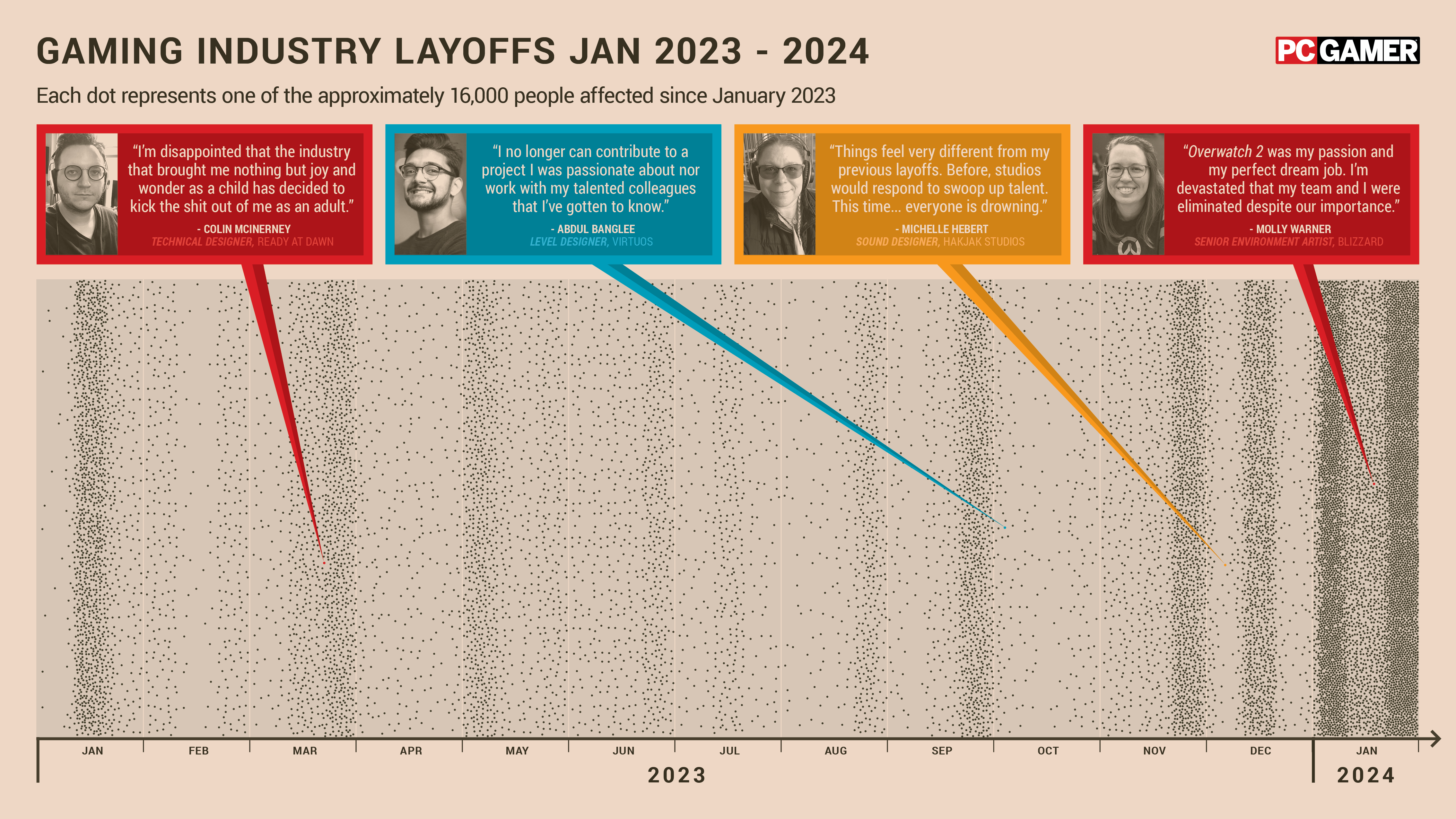
In the beating heart of the video game industry, 2023 has proven to be a year of exceptional paradoxes: from the euphoria of epoch-marking title launches to the harsh reality of mass layoffs, from the uncharted heights of hardware sales to the modest increase in consumer spending. A comprehensive report by Matthew Ball has detailed how this ever-evolving sector swings between the triumph of creativity and economic challenges, sketching a landscape rich with lessons and directions for the future.
Let’s dive into the 10 most surprising facts that defined the gaming industry in 2023, exploring the dynamics that underscore both its resilience and vulnerabilities.
1. A wave of layoffs despite commercial success
Despite a year of astonishing successes and video game launches that broke sales records, the video game industry had to face a sad record: over 10,500 job losses, exceeding the previous year’s layoffs by 20%. This contradiction raises reflections on occupational stability in the sector.

2. Blockbuster games in a year of crisis
Titles like ‘Hogwarts Legacy’, ‘Baldur’s Gate 3’, and ‘The Legend of Zelda: Tears of the Kingdom’ have dominated the charts, showing that despite occupational challenges, innovation and creative excellence remain the industry’s cornerstones.
Zelda Tears of the Kingdom:
- Sales: 3.4 million copies sold in the first week (a record for Nintendo Switch), 10 million copies sold in total (as of December 31, 2023), the most sold game of 2023 in Japan, the United States, and Europe.
- Reviews: Average score of 97/100 on Metacritic, Game of the Year at The Game Awards 2023.
- Other Data: 100 hours of gameplay on average, over 200 side missions, 4K on Nintendo Switch OLED.
Baldur’s Gate 3:
- Sales: 5.5 million copies sold in early access, the best-selling role-playing game on Steam in 2023.
- Reviews: Average score of 97/100 on Metacritic, the second-best game of 2023 at The Game Awards.
- Other Data: 100+ hours of gameplay in early access, thousands of dialogue options, isometric role-playing game with a strong narrative component.
3. The unstoppable rise of Roblox
The Roblox platform saw an increase in its daily active users from 59 to 70 million in just three months, confirming the growing importance of social and creative gaming experiences.
4. The Meta’s Quest 3 phenomenon
Launched in October 2023, Meta’s Quest 3 shattered all predictions by selling about 20 million units, twenty times more than its predecessor, and marked a new era for virtual reality gaming.
5. Marginal growth in consumer spending
Despite overall growth, US consumer spending on video games in 2023 recorded only a 1.1% increase compared to the previous year, reflecting a potential market saturation and consumer rejection of an increasingly aggressive microtransaction system.
Recommended article: is AI ready to beat a highly complex strategy game?
6. The triumph of Super Mario Bros. Movie
With a global box office of 1.4 billion dollars, the Super Mario Bros. movie confirmed itself as a cinematic giant, highlighting the cross-cultural power of video games in pop culture.
7. ‘Hogwarts Legacy’: a record-breaking success
Generating 850 million dollars in its first two weeks and expected to surpass 1.2 billion, ‘Hogwarts Legacy’ showed how quality titles can achieve extraordinary results, with an estimated 22 million copies sold in 2023 only.
8. Rising costs for developers
Video game developers faced an increase in employee costs of 15%-20% compared to the pandemic period, an economic pressure reflecting the sector’s challenges.
9. The rebirth of hardware sales
2023 saw a significant increase in hardware sales, with ninth-generation consoles and high-end graphics cards finally becoming available to the general public.
10. A slight drop in total revenues
With global revenues around 187 billion dollars, the sector recorded a drop compared to the 190 billion peak in 2021, indicating a slight contraction in the growth path.
Conclusion: A year of contradictions
2023 was a year of great successes for the video game industry, with record sales and an ever-broader and more diverse user base. However, it was also a year of strong contrasts, with various issues igniting debate within the community. On one hand, market growth led to technological innovations and a greater variety of available titles. On the other, the pressure for commercial success led to phenomena like crunch time and aggressive microtransactions. Moreover, the spread of online gaming brought new challenges related to online toxicity and gaming addiction. In a constantly evolving context, it’s important for the gaming industry to reflect on its contradictions and find solutions for a more sustainable and responsible future.
The key to success will be finding a balance between commercial needs and the protection of players, ensuring a fun, safe, and inclusive gaming experience for all.




